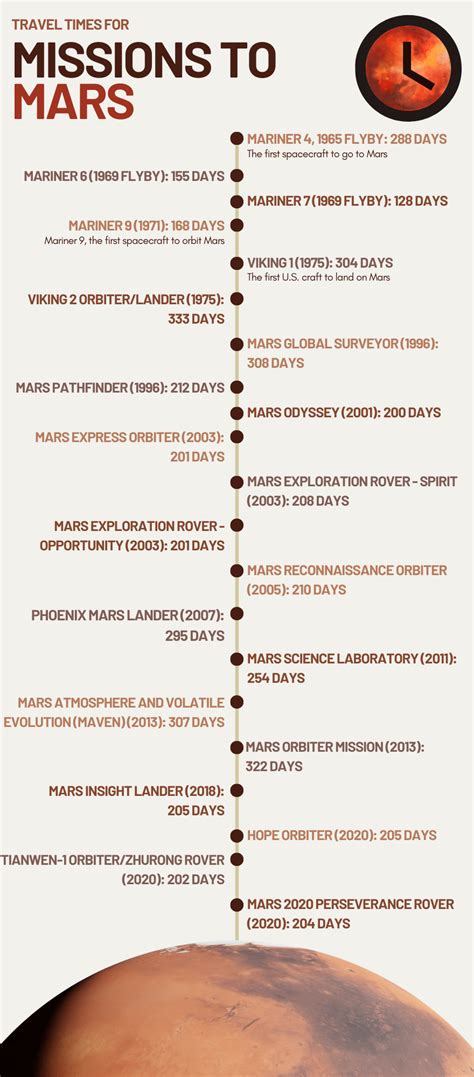How Long Does It Take To Go To Mars? A Journey Through Space and Time
The question of how long it takes to reach Mars is not a simple one. Unlike a road trip with a predictable travel time, a Mars mission involves complex variables affecting the journey's duration. This comprehensive guide will delve into the factors influencing travel time and explore the potential for faster future missions.
Factors Affecting Mars Travel Time
Several key factors influence the duration of a Mars mission:
1. The Orbital Mechanics of Earth and Mars
The Earth and Mars don't travel in perfectly aligned circles around the Sun. Their orbits are elliptical, meaning the distance between them constantly changes. This distance significantly impacts travel time. A launch during an optimal orbital alignment – known as an "opposition" – results in a shorter journey.
2. Chosen Trajectory: Hohmann Transfer vs. Other Methods
The most fuel-efficient route is typically the Hohmann transfer orbit. This method uses a carefully calculated trajectory that requires the spacecraft to gradually accelerate and decelerate to match Mars' orbit. While fuel-efficient, this method takes significantly longer.
Other trajectories, although potentially faster, might demand substantially more fuel. Future technological advancements could lead to alternative, faster methods, but they're still under development.
3. Speed of the Spacecraft
The speed at which a spacecraft travels is directly proportional to the journey's duration. While faster speeds reduce travel time, they require more powerful propulsion systems and increased fuel consumption. Current technology limits the achievable speed for Mars missions.
4. Mission Objectives: Flyby, Orbiter, or Lander?
A simple flyby mission might only require a short transit time. However, missions involving orbiting Mars or landing on the surface necessitate more time for maneuvers, orbit insertion, and descent. These additional steps significantly add to the overall duration.
Typical Travel Times: A Range of Possibilities
Based on current technology and trajectory planning, a Mars mission generally takes anywhere from 6 to 8 months. This is a considerable timeframe, even using the most efficient Hohmann transfer orbit.
Faster travel is a subject of ongoing research. Developing advanced propulsion systems, such as ion propulsion or nuclear thermal propulsion, could potentially reduce travel time to a few months, or even weeks, in the future.
The Future of Mars Travel: Pushing the Boundaries
Scientists and engineers are constantly exploring ways to shorten the travel time to Mars. Some key areas of research include:
- Advanced Propulsion Systems: Developing new, more powerful propulsion technologies is crucial for faster and more efficient interplanetary travel.
- Aerobraking and Aerocapture: Using planetary atmospheres to slow down spacecraft can reduce the fuel needed for deceleration, potentially saving time and resources.
- Improved Trajectory Planning: Sophisticated algorithms and computer modeling are continually refined to optimize trajectories for minimal travel time.
Conclusion: A Long but Rewarding Journey
While a trip to Mars currently takes several months, the pursuit of faster and more efficient travel continues. The challenges are significant, but the potential rewards – expanding our understanding of the universe and potentially establishing a human presence on another planet – are immense. As technology advances, the duration of this remarkable journey is likely to decrease, paving the way for more frequent and ambitious Mars expeditions.
